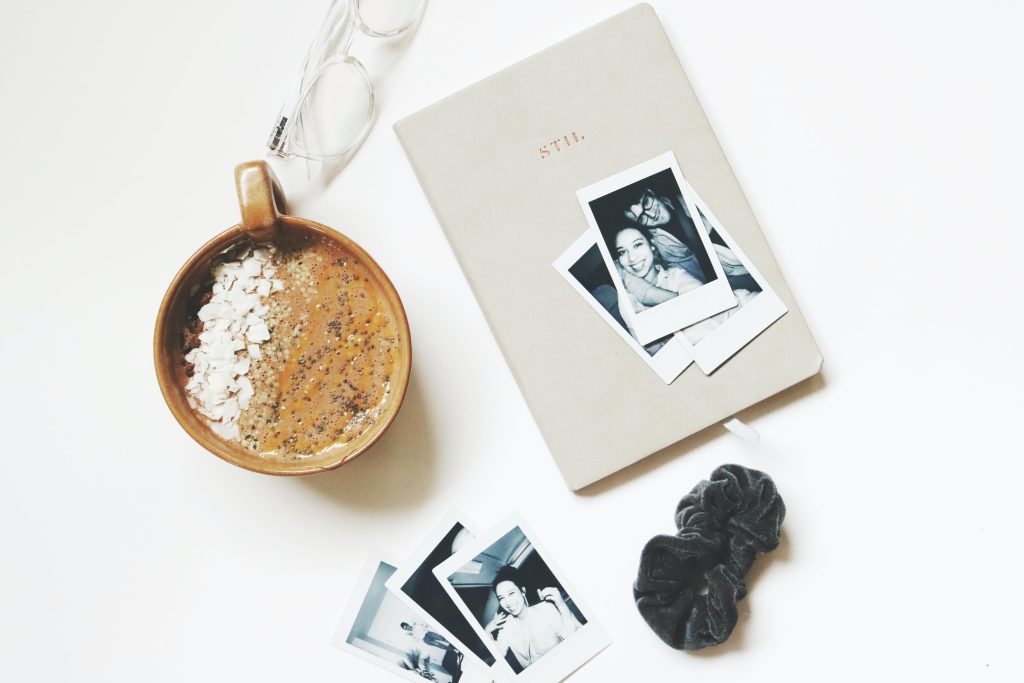The Ultimate Guide to Introverted Sensing (Si)
If you’re curious about Introverted Sensing, also known as Si, this is the guide for you. We’ll explore everything related to this cognitive function, including how it manifests, real-life examples, and famous people who primarily use Introverted Sensing.

If you’re curious about Introverted Sensing, also known as Si, this is the guide for you. We’ll explore everything related to this cognitive function, including how it manifests, real-life examples, and famous people who primarily use Introverted Sensing.
So whether you’re new to cognitive functions or just want to delve deep into Introverted Sensing, keep reading.
What is Introverted Sensing?
Introverted Sensing is one of eight cognitive functions, which are modes of processing information and making decisions based on our personality types. They form the basis of how we think and draw conclusions.
Introverted Sensing is one of the processes that help us understand our inner world. It’s about experiencing and perceiving our inner world through stored memories of sensory information.
Introverted Sensing is all about soaking up sensory information and storing it for future reference. It’s associated with remembering facts and details from the past. Those who use it as a primary cognitive function tend to be very good at recalling memories in great detail.
If Introverted Sensing was a question, it would be: how does this compare to what I remember?
Defining ‘Introverted Sensors’

In this post, when we talk about ‘Introverted Sensors,’ we are primarily talking about personality types who use Introverted Sensing as their dominant cognitive function. So, these would be ISFJs and ISTJs.
Within the term ‘Introverted Sensors,’ we also include personality types who use Introverted Sensing as their auxiliary function, which are ESFJs and ESTJs. But they will relate to the content of this post to a lesser extent.
How Introverted Sensing manifests
Let’s take a look at how developed Introverted Sensing manifests.
Summary
Introverted Sensors are drawn to structure and routine because they take comfort in things that they know. They instinctively compare new experiences to those that happened in the past. This awareness and focus on past experiences is the reason why Introverted Sensors are typically traditional. In addition, they tend to be sentimental people who play by the rules.
One of the most defining characteristics of Introverted Sensors is that they have a good memory for details and are easily able to recall past experiences. In addition, they are very in touch with their inner world. For the most part, they are highly aware of their internal body sensations such as hunger, pain, or their bodily temperature.
Problem-solving
When tackling problems, Introverted Sensors are able to find workable solutions by taking a step-by-step approach. They have a linear thought process, which is evident in how they solve problems. As highly practical people, they prefer to deal with real-world problems rather than theoretical ones.
Introverted Sensors also tend to be very organized, which helps them break down a problem into smaller, more manageable pieces. They’re patient and they have a lot of endurance, so they’re able to stick with a problem until they find a practical solution.

Communication
Introverted sensors tend to communicate with tangible, concrete facts. They get their points across in a literal way. In general, they focus on facts and verifiable information. This means that they tend to avoid using metaphors and analogies when they are communicating.
When sharing their opinions, they’re more likely to cite specific examples from their past experiences. For example, they might describe, in detail, an event that happened. Because of their gift for recall, they can be quite convincing when they’re sharing their point of view.
Memory
While some people remember overall impressions of events, Introverted Sensors remember specific details. In fact, they have some of the best memories out there. They often remember exactly how things felt, smelled, tasted, etc. For example, when asked about a restaurant, they might remember a specific item on a menu that they enjoyed rather than the reason they were there.
Introverted Sensors tend to be exceptional at remembering birthdays and special dates. In fact, it’s almost as if they have a library of memories in their minds that they can draw upon, and this is what enables them to compare present experiences with those in the past. Introverted Sensors are often very talented students, largely because of their ability to remember detailed information for work or school.
Real-life examples of Introverted Sensing in action
Here are some real-life examples of Introverted Sensing so you can think about it in a practical and relatable way.
- Seeing flowers and remembering those you used to pick as a child.
- Biting an apple and noticing that it tastes different from those you’ve eaten before.
- Being able to tell that someone is nervous because their body language is different than usual.
Weak Introverted Sensing

Weak Introverted Sensing manifests as a lack of order and structure.
People who have inferior Introverted Sensing might not have set meal times and just eat whenever they feel like it. They often have disorganized closets and messy bedrooms. And they can end up losing their car keys because they put them in a different place each time they get home.
These are just a few examples, but hopefully, they give you a flavor of what weak Introverted Sensing looks like.
Strengths of Introverted Sensors
Here are some of the strengths associated with Introverted Sensors:
- Practical: They are able to find workable solutions by assessing the realities of the situation and taking action.
- Organized: They are organized, which means they are often good at staying on top of things, whether it’s to do with work or their social life.
- Good memory: They have a great memory for details and are able to recall past experiences easily.
- Reliable: They can be counted on to stick to their word and follow through with their commitments.
- Patient: They don’t need instant gratification, and they are happy to persevere until they see results.
Weaknesses of Introverted Sensors
Introverted Sensors can have some weaknesses too:
- Narrow-minded: They can be very focused on what they already know, which means they aren’t always open to new ideas.
- Inflexible: They can get stuck in a rut and may find it hard to try new experiences.
- Too detail-oriented: They may overthink things and get bogged down in the details at the expense of focusing on the big picture.
- Struggle to relax: They may find it hard to relax and go with the flow because this just doesn’t come naturally to them.
- Nitpicky: They can be quite critical because they have the ability to notice details and inconsistencies.
Famous people who use Introverted Sensing
Now, let’s look at how Introverted Sensing manifests in real celebrities.
1. Kim Kardashian, ISFJ
Kim Kardashian is an Introverted Sensor. It might surprise people that Kim Kardashian is an introvert, but it makes total sense when you think about it. She’s a homebody who loves nothing more than spending time with her family. Introverted Sensing is evident in Kim’s behavior in a number of ways, including the fact that she is organized and works hard. In addition, it shows in the ways that she’s traditional and holds strong family values. Kim is super close with her mom and siblings and is always there for them.
2. Queen Elizabeth II, ISTJ
Introverted Sensors are known for their dutiful nature, and this was certainly the case for Queen Elizabeth II. She was also known for her level-headedness which is another trait of Introverted Sensors. More than anything, Queen Elizabeth II took her responsibilities very seriously. There has been no monarch more dutiful and dedicated to service than Queen Elizabeth II. She served as Queen for over 70 years! In addition, she was a very traditional person, and she liked to stick to tried-and-true methods. She wasn’t one for taking risks and preferred to play it safe. These typical Introverted Sensor characteristics of valuing stability and order served her well during her long reign.
3. Emma Watson, ISFJ
Introverted Sensors are known for their reliability and dedication, and these are traits that can certainly be seen in Emma Watson. Emma Watson is private and does not share much about her personal life with the public. However, when it comes to her work, she is passionate and committed. Introverted Sensors are often very good students. When Emma took her British GCSEs, she achieved eight A*s and 2As, which solidly put her in the top bracket of students in the country. Introverted Sensors tend to be good at exams because of their memory for details and information.
4. Jeff Bezos, ISTJ
Jeff Bezos is a great example of someone who has used their Introverted Sensing to succeed in business. Jeff is always focused on the task at hand, and he’s always looking for ways to make things more efficient. In true Introverted Sensor style, he is a stickler for detail, which is why Amazon is such a successful company. He was constantly looking for ways to improve the customer experience. In addition, Jeff is practical, focused, and organized, which are two additional traits that contributed to his success.
5. King Charles, ISFJ
In true Introverted Sensor fashion, King Charles takes his duties very seriously and cares deeply about those close to him. Introverted Sensors value tradition and loyalty and King Charles is no different. He is known for his dedication to his work and his commitment to his family and friends. Kind Charles is also patient, organized, and practical. The Duchess of Cornwall, Camilla, is an ESTP personality type. King Charles and Camilla, Queen Consort, are the perfect personality match.

How to develop your Introverted Sensing skills
The key to developing your Introverted Sensing skills is to transport yourself back in time and embrace your memories. Here are some things you can do to work on your Introverted Sensing.
- Dig out an old photo album. Take a trip down memory lane by looking through an old photo album. As you flip through the pages, take time to really remember the details of what you experienced at the time. How did the place smell? What were the people saying? What was the weather like? Really try to embrace what that moment was like.
- Recreate moments. Visit places from years ago that have stuck in your mind. Alternatively, you could watch an old favorite movie or listen to a song that you played on repeat during a certain period of your life. Get a journal and write down these memories, both good and bad. Include as many details as you can remember.
- Talk to your parents or grandparents. If you want to know more about your family history, talk to your parents or grandparents. This is a good way of understanding your roots and background. You might learn some interesting facts during the process, too.
- Re-start a forgotten tradition. If there’s a family tradition that’s been forgotten, try to restart it. This could be anything from cooking a specific dish on holidays to going for a nature walk every Sunday. Think back to remember something you used to do on a regular basis. Recreate the experience now and see how it compares.
- Embrace routine. Create some kind of routine for yourself. This can be anything from going to bed at the same time each night to taking a walk after dinner. Having a set routine can help to ground you and free up your mind so it can focus on other things.
Introverted Sensing is a valuable skill that can be further developed with the right approach and some effort. By taking the time to remember past experiences, implementing routine, and respecting traditions, you can continue to grow as an individual and make the most of your Introverted Sensing.
Personal growth tips for Introverted Sensors
If you’re an Introverted Sensor who is looking to develop different aspects of yourself, here are some tips for you.
- Stay open to new ideas. Just because you like things a certain way doesn’t mean that there isn’t another way that could work just as well, if not better. Be open to hearing about new ideas and giving them a try.
- Step out of your comfort zone. It can be easy to get stuck in a rut, but sometimes, it’s necessary to step out of your comfort zone in order to grow. Trying new things can be scary, but it’s often worth it in the end.
- Listen to your intuition. Sometimes, you won’t have all the information that you need to make a decision, but you’ll have a gut feeling about what the right thing to do is. As an Introverted Sensor, it’s important to learn to trust your intuition at times, even though it doesn’t come naturally to you.
- Think about the big picture. Yes, the details are important, but you don’t want to get so bogged down in them that you lose sight of the big picture. Sometimes, you need to take a step back and look at the situation as a whole in order to see what’s really going on.
- Take time out to relax. Relaxation doesn’t come easily to you, but it’s important to make time for it anyway. Maybe there’s a certain activity that helps you to relax, or maybe you just need some time to yourself. Whatever it is, make sure you schedule some downtime so that you don’t get burnt out.

Share this post to help others understand Introverted Sensing
We hope that this post has helped you understand what Introverted Sensing is, how it manifests, and how you can develop as a person. If you found it helpful, please share it with others who might benefit from our deep dive into Introverted Sensing.




